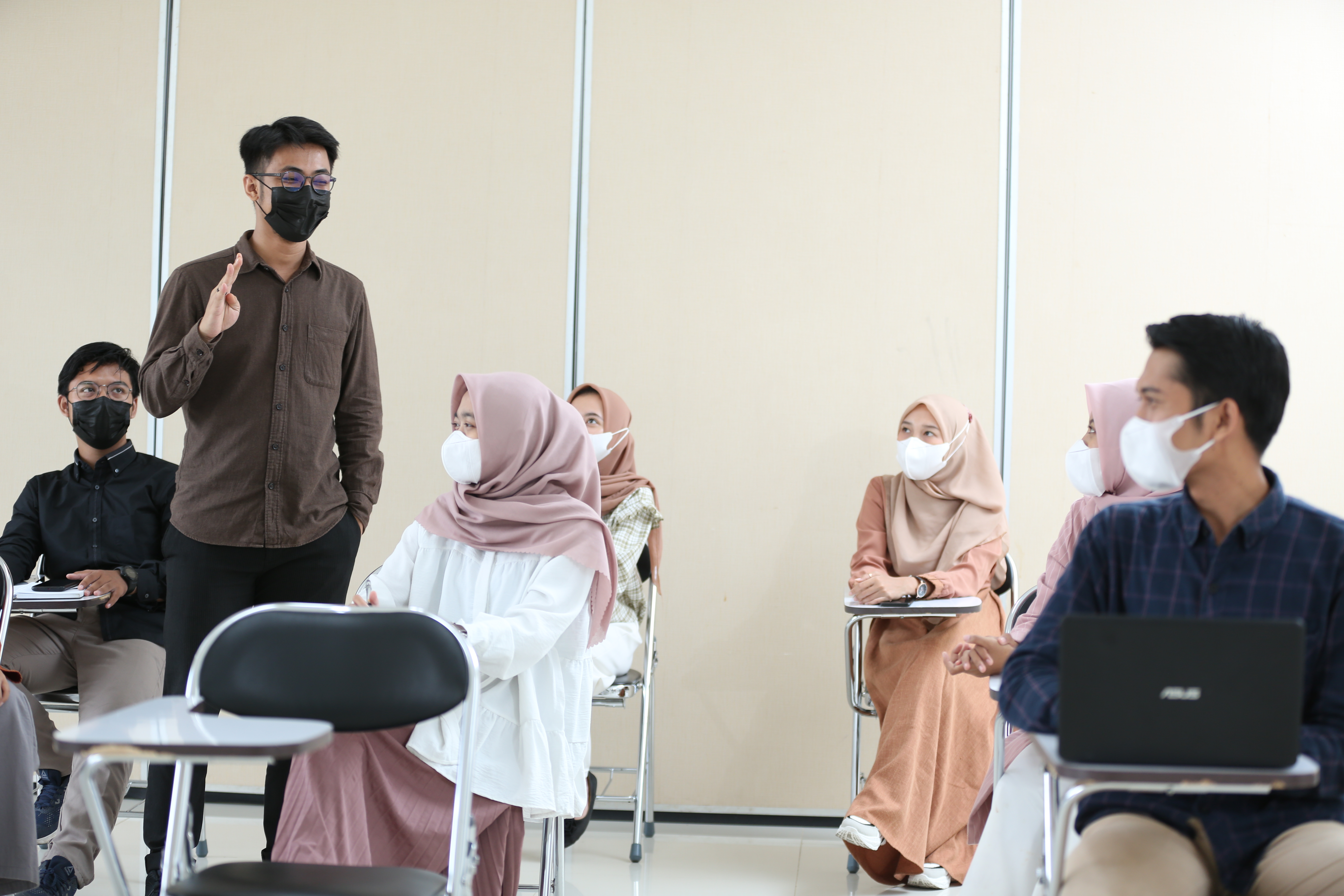EDUCATIONAL PHILOSOPHY
Universitas Ahmad Dahlan is one of Muhammadiyah Universities. K.H Ahmad Dahlan as the founder of Muhammadiyah, explained the basic foundation of education that must be developed, namely moral (character), individual, and social education. Moral education is the transfer of religious values from an early age to Muhammadiyah students, which are reflected in behavior, attitudes, and thoughts in everyday life. Individual education is intelligence education, which provides motivation to develop the reasoning abilities of students optimally. As for social education, it is to instill social sensitivity and care for students to social problems that befall fellow human beings regardless of ethnicity, race, and religion. If this relates to the intelligence that must be developed in students, then the three intelligences that must be considered are SQ (Spiritual Quotient), IQ (Intellectual Quotient), and EQ (Emotional Quotient). The three of them are not separate regions but an integral whole.
Based on the Muhammadiyah Education philosophy, As stated in the Universitas Ahmad Dahlan Statute of 2015 chapter III, article 3, verses 2 and 3, the educational philosophy of Universitas Ahmad Dahlan is Moral and Intellectual Integrity. This educational philosophy explains Universitas Ahmad Dahlan has the main competencies in scientific development in the integrity of science, technology, and the arts, Islamic science, and development.
Therefore the philosophy of Guidance and Counseling Study Program (SP-GC) is inspired by the educational philosophy of Muhammadiyah and the educational philosophy of Universitas Ahmad Dahlan. The educational philosophy of the SP-GC is “education is carried out based on religious norms, current realities, and future predictions”
The Meaning of Educational Philosophy
| Educational Philosophy | Description | Implementation |
| Religious Norms | Islam needs education as a strategic means to transfer Islamic values. Teaching and learning activities at SP-GC are a means of transferring Islamic values. |
|
| Current Realities | Through the teaching and learning activities at SP-GC, students can develop their abilities to face today’s demands. |
|
| Future Predictions | Through the teaching and learning activities at SP-GC, students can make strategic steps to face life’s demands and hopes in the future. |
|
This educational philosophy has become a significant force in creating a suitable academic environment on campus and producing graduates who have knowledge, skills, and attitudes that are more optimal and based on Islamic values. Educational philosophy is implemented through the teaching and learning process using the Student-Centered Learning (SCL) approach. This approach emphasizes the active involvement of students, student responsibilities in the learning process, and the role of lecturers as facilitators. Through this approach, students can gain a deeper understanding and be able to apply theory into practice to achieve lifelong learning.
The educational philosophy is well articulated and communicated to students, lecturers, support staff, students’ parents, and stakeholders through brochures, websites, Campus Introduction Programs, and Counselling Camp. The educational philosophy is reviewed once a year for minor revisions and every five years for major revisions through internal and external forum meetings of Guidance and Counseling Study Program lecturers, involving leadership elements at the university and faculty levels, as well as stakeholders.



